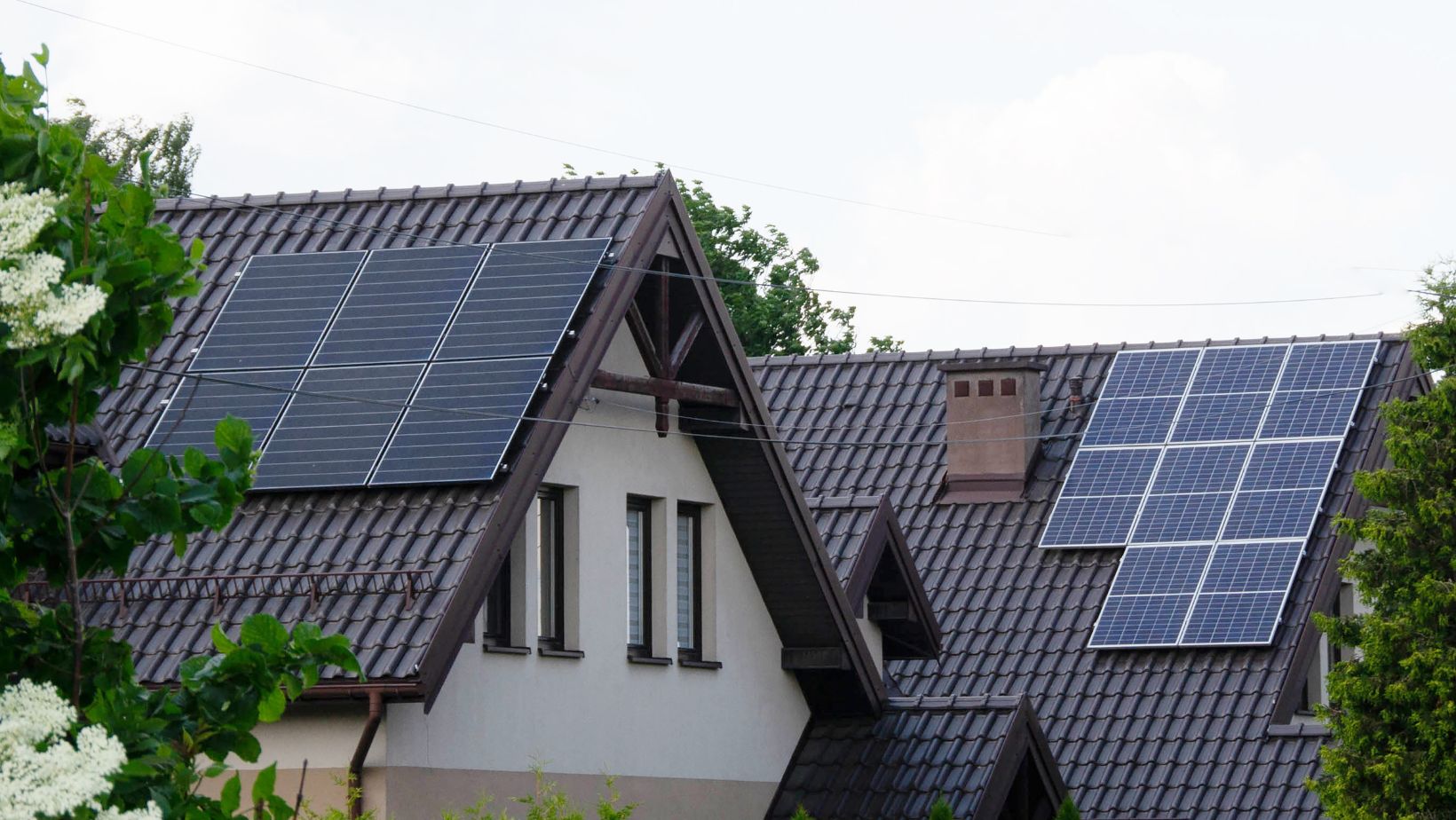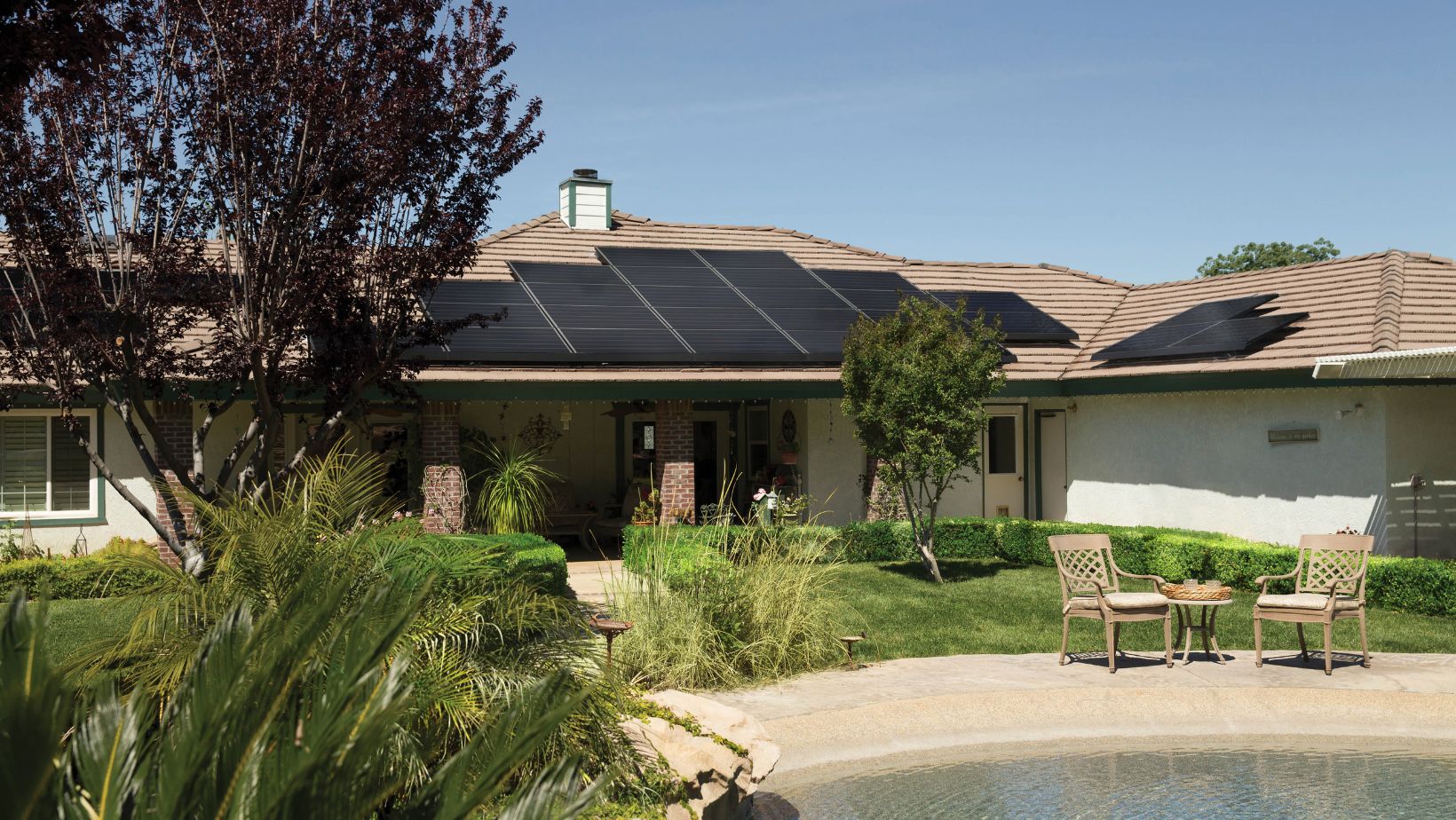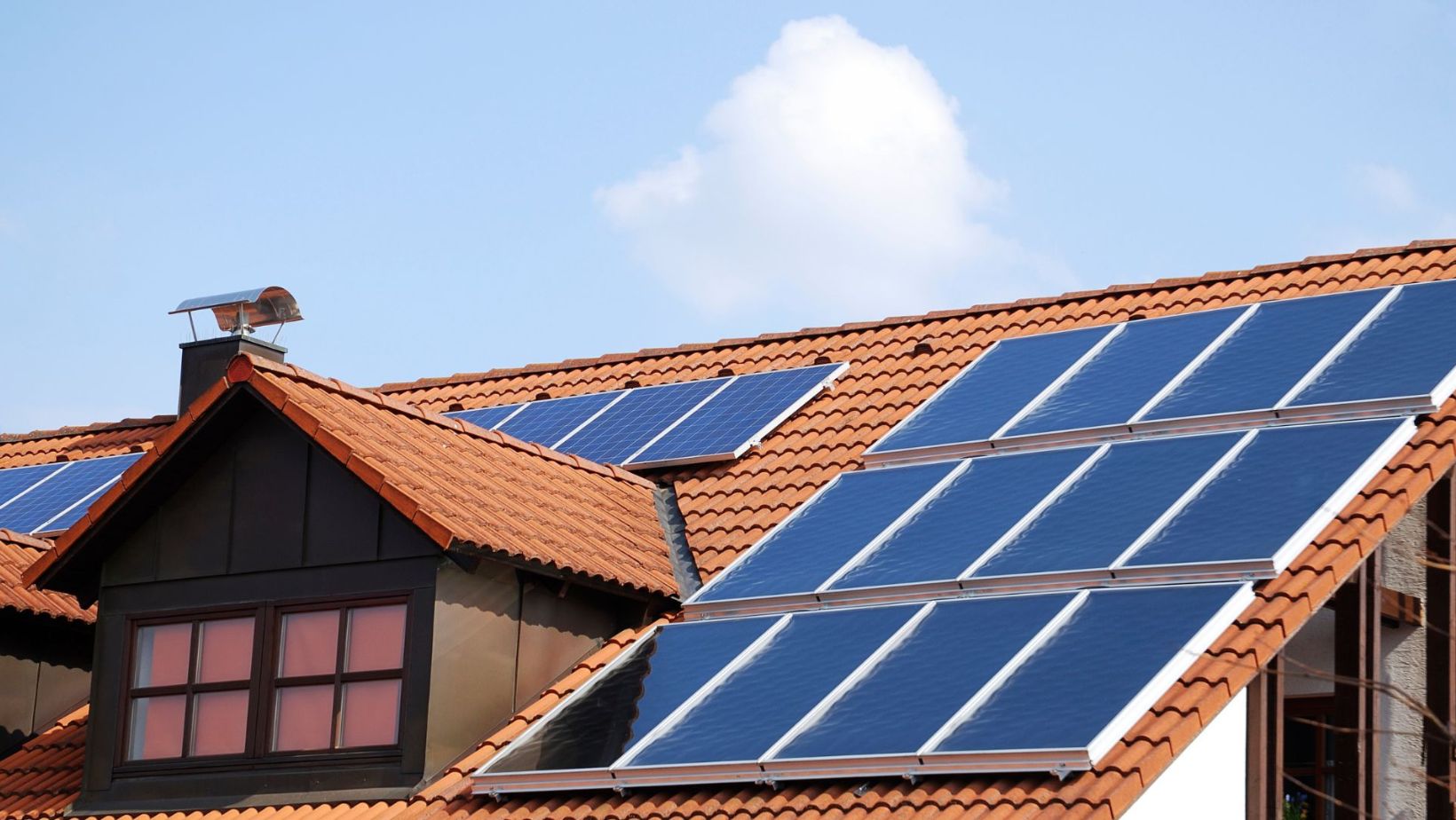Are you thinking about solar panels for your roof? It’s a smart move towards sustainability and energy efficiency. But, like any home improvement project, safety is a top concern. You might wonder about the health implications or how these panels will affect your roof’s structure. Rest assured, solar panels are designed with safety in mind. They emit very low levels of electromagnetic radiation, similar to everyday appliances like microwaves, and are made from materials that are safely encapsulated to prevent exposure to harmful substances. Plus, when installed by certified professionals, they offer numerous benefits without compromising your home’s integrity. Let’s dive into what makes solar panels a safe and environmentally friendly choice for your home.
Understanding the Safety of Solar Panels on Your Roof
Experts at Sun Valley Solar Solutions emphasize that installing solar panels on your roof is not only a step towards sustainable living but also a safe choice for homeowners. When considering the safety of solar panels, it’s essential to understand that they pose minimal health risks. The electromagnetic radiation emitted by solar panels is extremely low, comparable to everyday household devices like microwaves and refrigerators. This level of radiation is non-ionizing and does not pose any significant threat to human health. Additionally, the materials used in solar panels, such as silicon and aluminum, are encapsulated in protective layers, minimizing any potential exposure to harmful substances.

When installed correctly by certified professionals, solar panels offer numerous benefits without compromising safety. They contribute positively to the environment by reducing reliance on fossil fuels, which in turn decreases air pollution and carbon emissions. This makes them an environmentally friendly option for energy production. Moreover, the installation process itself is designed to ensure safety; reputable contractors follow industry standards to prevent issues such as roof leaks or structural damage. By choosing a reliable installation company and maintaining your solar panels properly, you can enjoy the advantages of clean energy with peace of mind.
Evaluating the Structural Impact of Solar Panels
When considering the installation of solar panels, it’s essential to understand how they impact the structural integrity of your roof. Solar panels are generally safe for roofs, but ensuring your roof is in good condition before installation is crucial. This means checking for any existing issues, such as leaks, cracks, or missing tiles. A thorough assessment can prevent future problems and ensure that your roof can support the additional weight of the panels.
Proper installation by certified professionals is vital to avoid potential issues like roof leaks or weight damage. Hiring experienced contractors ensures that the panels are installed correctly and securely. Here are some steps to consider:
- Inspect your roof: Look for any signs of damage or wear that might need repair before installation.
- Choose reputable installers: Ensure they have a track record of successful installations and are familiar with local building codes.
- Verify equipment quality: High-quality materials and technology can enhance the longevity and safety of your solar panel system.
By taking these precautions, you can enjoy the benefits of solar energy without compromising the safety and durability of your home’s structure.
Addressing Health Concerns Related to Solar Panels
When it comes to solar panels, some homeowners express concerns about potential health risks, particularly related to electromagnetic fields (EMFs) and chemical exposure. It’s important to understand that these worries are largely unfounded. Solar panels do emit EMFs, but the levels are extremely low and comparable to those produced by everyday household appliances like microwaves and refrigerators. Extensive research, including studies by the World Health Organization, has found no evidence linking solar panels to cancer or other health issues. In fact, the radiation emitted by solar panels is non-ionizing and far below harmful levels.
Another common concern is the potential exposure to harmful chemicals used in solar panel manufacturing. Solar panels are constructed with materials such as silicon and aluminum, which are safely encapsulated within protective layers. This encapsulation minimizes any risk of exposure under normal operating conditions. Even in cases where panels might be damaged or degrade over time, the likelihood of hazardous substances like lead or cadmium being released is minimal. To further alleviate these concerns, many modern solar panels are designed without toxic materials like cadmium telluride. Here’s a quick summary of why solar panels are safe:
- Low EMF Emission: Comparable to standard household devices.
- Encapsulated Materials: Minimize exposure to potentially harmful substances.
- No Link to Cancer: Supported by extensive research and studies.
By understanding these facts, homeowners can feel confident that installing solar panels on their roofs poses no significant health risks while offering numerous environmental benefits.
The Environmental Benefits of Solar Energy
Switching to solar energy offers numerous environmental benefits compared to traditional fossil fuels. One of the most significant advantages is the reduction in air pollution and carbon emissions. Solar panels harness the sun’s energy, providing a clean and renewable power source that doesn’t release harmful pollutants into the atmosphere. This transition contributes to cleaner air, which is beneficial for both human health and the environment. By decreasing reliance on fossil fuels, solar energy helps combat climate change and promotes a healthier planet for future generations.
Another important aspect of solar energy is its role in sustainable waste management through recycling programs. As solar panels reach the end of their life cycle, these programs ensure that materials are responsibly managed and recycled, minimizing environmental impact. This not only conserves resources but also prevents potentially hazardous substances from entering landfills. By supporting recycling initiatives, homeowners can further enhance the positive environmental impact of their solar installations. Embracing solar energy is not just about reducing emissions; it’s about fostering a sustainable future through responsible practices.
Ensuring Safe Installation and Maintenance
When it comes to ensuring the safe installation and maintenance of solar panels, choosing the right contractor is crucial. It’s essential to hire reputable contractors who have a proven track record with similar projects. This not only guarantees that your solar panels are installed correctly but also minimizes potential risks associated with improper installation. Look for contractors who are licensed and insured, and don’t hesitate to ask for references from previous clients. A reliable contractor will provide a detailed contract outlining the scope of work, costs, timelines, and warranties, ensuring transparency and protecting your investment.
Regular maintenance is key to keeping your solar panels operating efficiently and safely. After severe weather events such as hailstorms or strong winds, it’s wise to schedule inspections to assess any potential damage. Routine checks can help identify issues early on, preventing costly repairs down the line. Maintenance practices should include:
- Visual inspections for cracks or debris accumulation.
- Cleaning the panels to remove dirt and grime that may affect performance.
- Checking electrical connections to ensure they remain secure and functional.
By following these practices, you can extend the lifespan of your solar panels while ensuring they continue to provide clean energy for your home.
Solar Panels in Extreme Weather Conditions
When it comes to solar panels, one of the most common concerns is their ability to withstand extreme weather conditions. Rest assured, modern solar panels are engineered with durability in mind. They are designed to handle a variety of harsh weather scenarios, including hailstorms, strong winds, and heavy snow loads. This resilience is mainly due to the use of tempered glass layers, which provide a robust shield against environmental factors. Additionally, the structural support integrated into solar panel systems ensures they remain securely in place, even during severe weather events.
Moreover, the protective features of solar panels extend beyond just tempered glass. Many systems include additional elements that enhance their durability and longevity. For instance:
- Reinforced frames that offer extra stability against high winds.
- Water-resistant seals to prevent moisture penetration during heavy rains or snow.
- Advanced mounting systems that allow for slight movement without compromising the integrity of the installation.
These design considerations not only protect your investment but also ensure that your home remains powered through adverse weather conditions. By choosing quality solar panels and professional installation services, you can enjoy peace of mind knowing your system is built to last.
Debunking Myths: Do Solar Panels Cause Fires?
When it comes to solar panels, one of the most common concerns is the risk of fire. It’s important to understand that while there is a potential risk if solar panels are not installed correctly, such incidents are quite rare. Fires associated with solar panels typically occur due to improper installation or faulty equipment. However, when proper safety standards are followed, the likelihood of a fire is significantly reduced. To ensure safety, it’s crucial to hire experienced professionals who adhere to industry best practices and local regulations.

Modern solar panel systems come equipped with several features designed to minimize fire risks. One such feature is the rapid shutdown system, which allows for quick deactivation of the system in case of an emergency. This feature is particularly beneficial for first responders, as it ensures their safety during firefighting operations. Additionally, high-quality solar panels are built with tempered glass layers and robust structural support, making them resilient against environmental factors that could otherwise pose a risk. By choosing reputable contractors and ensuring regular maintenance, homeowners can enjoy the benefits of solar energy without worrying about fire hazards.
Summary
Solar panels on your roof are not only a step towards sustainable living but also a safe choice for homeowners. The electromagnetic radiation they emit is extremely low, similar to everyday appliances like microwaves and refrigerators, posing no significant health risks. Materials used in solar panels, such as silicon and aluminum, are safely encapsulated to prevent exposure to harmful substances. When installed by certified professionals, solar panels offer numerous benefits without compromising safety, contributing positively to the environment by reducing reliance on fossil fuels and decreasing air pollution.
Ensuring your roof’s structural integrity before installing solar panels is crucial. A thorough assessment can prevent future problems and ensure that your roof can support the additional weight of the panels. Proper installation by experienced contractors is vital to avoid potential issues like roof leaks or weight damage. By choosing reputable installers and maintaining your solar panels properly, you can enjoy the advantages of clean energy with peace of mind. Additionally, modern solar panels are designed to withstand extreme weather conditions and include features like rapid shutdown systems to minimize fire risks.

